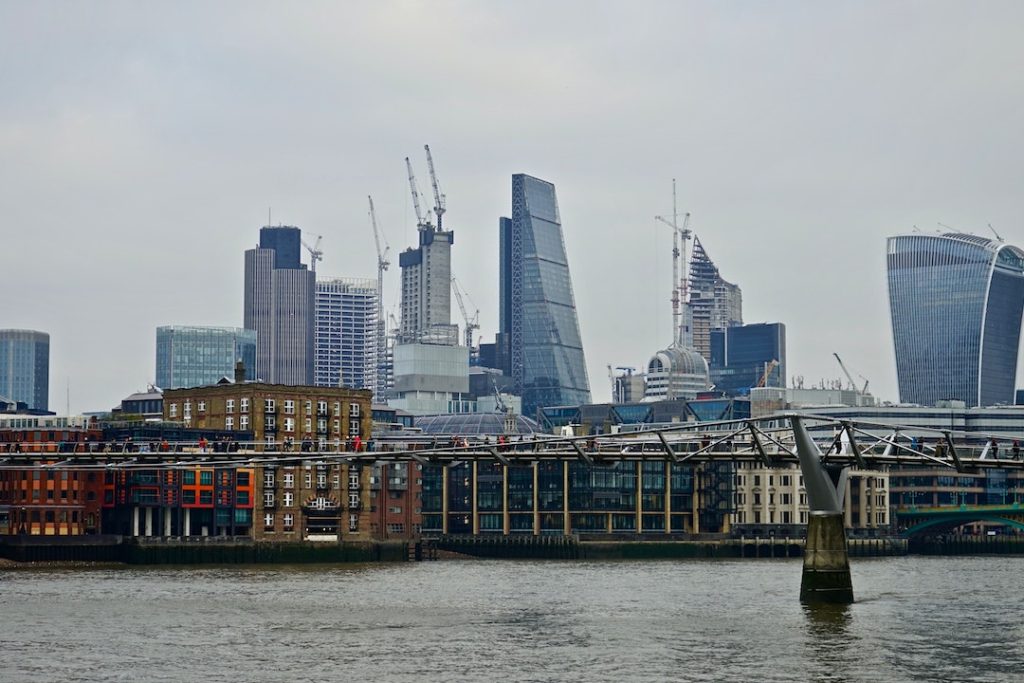Sir Paul Marshall, the head of a UK hedge fund, said more than a year ago that London was becoming a financial “Jurassic Park,” populated by creatures from a bygone period.
Old-school businesses and investors who valued dividends over growth skipped the most significant period of wealth creation in more than a century as US-listed tech firms commanded high valuations for their growth prospects.

Even though US big tech has since experienced a reality check due to rising interest rates that lower the value of future profits and lower share prices, the allure of US stock markets appears to have grown more seductive.
After being acquired by a Japanese investment fund seven years ago, chip designer Arm Holdings, once the crown jewel of UK technology, determined this week that its future rested as a US-listed company.
Rishi Sunak, a former Goldman Sachs banker, and other UK politicians actively lobbied against Arm’s choice to list here.
Arm is not the only person heading west in search of better prosperity.
The massive building materials company CRH, which has its headquarters in Ireland, is also shifting its primary listing from London to New York. New York frequently has higher valuations and trading volumes, which attracts investors because they can buy and sell more easily without affecting the price.
For instance, the value of everyday trading in Apple shares alone is almost two times that of the entire London Stock Exchange market.
In recent years, a few high-profile UK public share offerings have also failed. Shares of the food delivery company Deliveroo have lost 71% of their value since they were first listed in the UK, and one of its original shareholders, Dan Rimer of Index Ventures, told the BBC that he would have pushed for a US listing if given a chance.
Additionally, companies cutting costs in a market that has lost some of its lustre have drawn bargain seekers. Private investment funds that believe UK shares are undervalued have swooped on publicly traded businesses, including supermarket Morrisons, technology company Aveva, defence contractors Meggit and Ultra, and others that are now in private, primarily foreign, hands.
Additionally, UK investors are avoiding UK-listed businesses. The amount of assets held by UK pension funds that are involved in UK businesses has decreased from over 40% to under 5% over the last two decades. They favour buying overseas as well.
Is it important? Whether shares are listed in the UK, the US or one of the Continental exchanges, pension funds or individual investors can purchase them.
However, the UK financial services sector, which still accounts for more than 10% of the country’s overall economy and provides more than 10% of all taxes collected, benefits significantly from a UK listing.
Accountants, attorneys, financial PR agencies, and others profit from the fees generated by UK ads.
The government has taken note of the exodus. The UK has been working hard to attempt to become a more appealing location for businesses to set up shop.
In addition to allowing companies to issue shares with fewer voting rights, which is preferred by business founders who want to raise capital without ceding control of their company, Lord Jonathan Hill proposed new regulations that would relax the requirement that companies offer at least 25% of their shares for public purchase in order to list.
Some of these, as well as a new requirement for authorities to take competitiveness into account when policing the markets, were part of the so-called Edinburgh reforms, which were unveiled late last year.
The UK is pursuing ambitious reforms to the laws governing its capital markets, building on our continued success as Europe’s top investment hub and the second largest globally, the government said in reaction to Arm’s move to pursue a US share listing.
We keep drawing some of the biggest and most innovative businesses in the globe.
2021 marked a sort of comeback for London, marking its greatest year for new public listings since 2007. Keep in mind that in the US, 20 times as many companies raised 50 times as much money during the same time frame before we start high-fiving and cheering New York-style.
Just this week, the CEO of a sizable multinational bank expressed his continued confidence in London and the UK as desirable locations for companies to raise capital. The time zone, language, reputable English law, and a large talent group are still prized attributes.
But for many businesses, both new and old, the most significant value is the company’s value, and the more valuable the US shop window is, the more businesses will want to be exhibited there.












